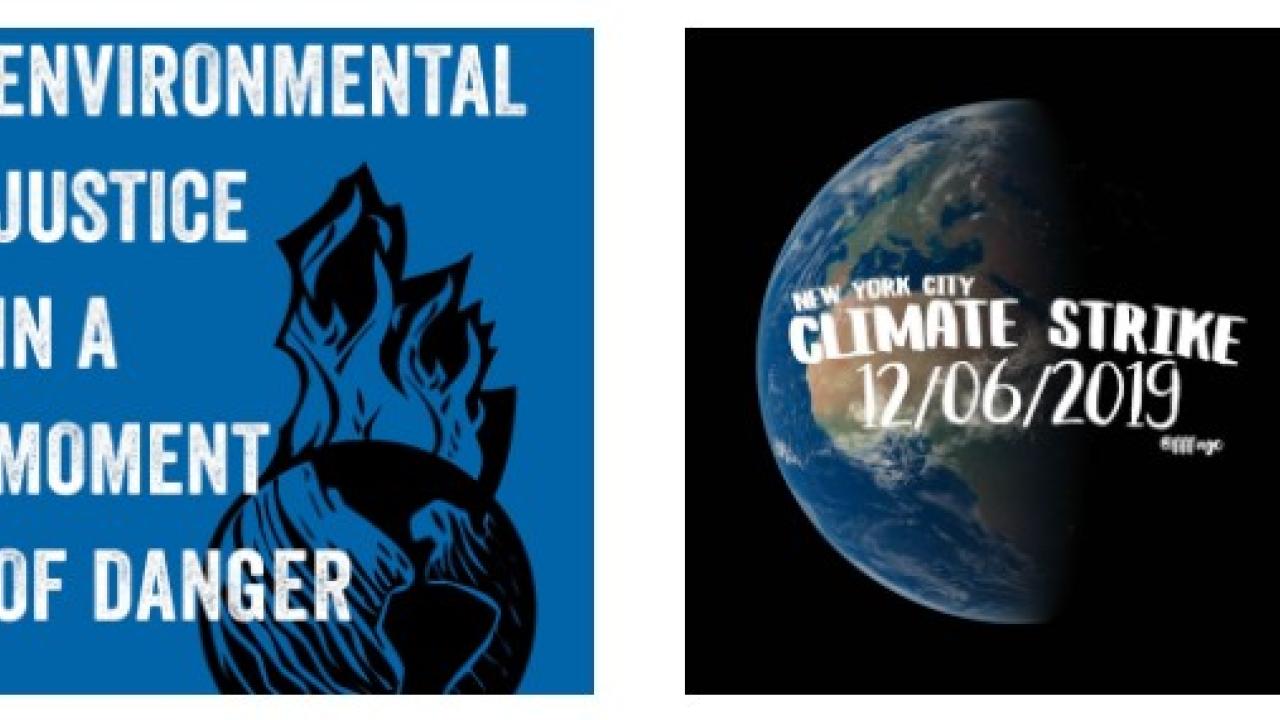
Meeting Climate Change with Radical Hope
As part of the UC Davis Cultural Studies Fall Colloquium on October 24, 2019, UC Davis Professor of American Studies Julie Sze and UC Davis Cultural Studies PhD student Kristin Hogue spoke on environmental justice and climate activism, respectively.
Professor Sze is also the founding director of the Environmental Justice Project at UC Davis’ John Muir Institute of the Environment. As a first-generation college student and longtime activist, she maintains a deep commitment to public scholarship reflected in both her teaching and publications. Royalties from her most recent book, Environmental Justice in a Moment of Danger (UC Press 2020), go to two nonprofit organizations: the Community Water Center in Visalia and UPROSE in Sunset Park, NY. During her talk, Sze laid out the main arguments of the book, developed over two decades of work with UPROSE and other organizations.
Environmental Justice in a Moment of Danger investigates the political crossroads we find ourselves in right now regarding climate change. The book argues that environmental justice movements are intersectional freedom struggles across time and space and that we might learn from them in this moment of danger. They are, Sze argues, a soundtrack of freedom that work against violence and for capacious freedom.
The field of American Studies has allowed Sze to pursue complex questions of environmental justice and structural violence that began when she was an undergraduate student community organizer asking why “seven out of eight diesel bus depots were in Harlem.” Following the work of Antonio Gramsci, Sze maintains that non-naive hope, or a sense of optimism as well as pessimism, is crucial to changing the conditions of the world that currently render so many lives so difficult.
Although violence, death, and trauma are real, in environmental justice movements as well as in other contexts, “We can’t,” Sze argues, “always live in nihilistic mode. That’s an affective strategy of the moment” used to obscure the fact that “in the case of climate, the people who are most harmed are the people who are least culpable.” Sze named one example of radical hope — Re-locate Kivalina, a campaign by the village of Kivalina in that is currently being swept away by rising sea waters. The village of Kivalina sued twenty-five oil and gas companies for damages due to climate change. Although the suit was thrown out in federal court, Sze articulated that it remains extremely important from an organizing perspective “because they’re trying to name the agents of their displacement.”
The event’s other speaker, Kristin Hogue, recently earned her MA in Climate and Society from Columbia University. While living in New York City, she became a climate activist and, through her daughter, became involved with youth climate activism there. Because her daughter, Alexandria Villaseñor, who has been an organizer of Fridays For Future in New York City and founded the youth climate action network Earth Uprising, was traveling for climate justice activism and unable to join the colloquium, Hogue had been granted special permission to speak about Alexandria’s work.
New York City, Hogue argued, is uniquely dense in terms of climate activism. With over forty organizations working together, it is a hotbed of activism to mitigate the violence of climate change. Hogue has worked with organizations such as Extinction Rebellion New York City and conferred with leaders from over forty organizations in climate coalitions. The direct actions, climate strikes, and more in which Hogue and Villaseñor have organized and taken part are further examples of hope in action against the oppressive roots and symptoms of climate injustice.
In her talk, Hogue highlighted the youth climate strikes in New York City from the winter of 2018 to the spring of 2019. This led to an official response from the city in May of 2019 and the New York City Climate Emergency Declaration in June of 2019. The Climate Emergency Declaration, a result of the youth movement, frames the climate crisis as it is and informs future legislation. The youth movement, Hogue emphasized, centers Indigenous voices and uses a variety of methods from legislation to protest.
Both speakers addressed the role of humor in justice movements. Sze discussed how the web series The North Pole uses humor to link gentrification and ecological justice in North Oakland. Hogue discussed the youth climate movement’s use of memes, such as those on the account @climememechange on Instagram. Both of these approaches embody refusals of the systemic violences of climate change in inclusive ways and create living conditions with even more room for hope.
Cultural Studies colloquia are generally held on Thursday afternoons; see the Fall 2019 schedule here.
